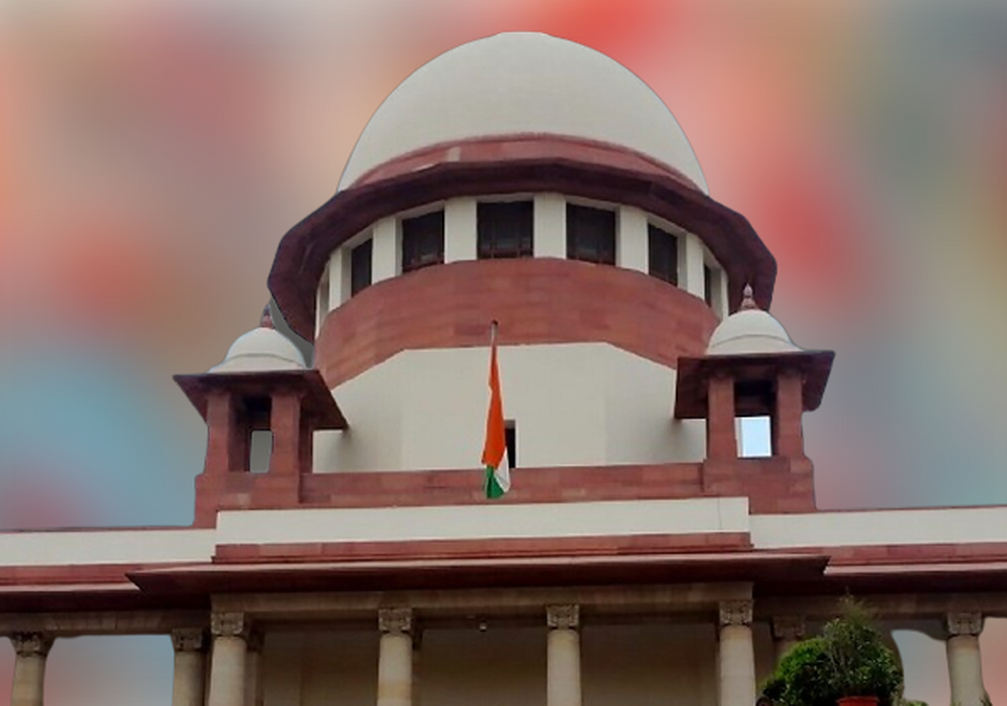In CRM-M-27136-2022 (O&M)-PUNJ HC- Availability of remedy of appeal u/s 14-A of SC/ST Act, 1989 does not prohibit Court from taking cognizance of petition filed with aid of Sec. 482 CrPC: P&H HC Justice Vinod S. Bhardwaj [20-07-2022]

Read Order: Vijay Sharma v. State of Punjab
Monika Rahar
Chandigarh, August 5, 2022: Recently, the High Court of Punjab and Haryana has held that even though the Scheduled Castes and Scheduled Tribe (Prevention of Atrocities) Act, 1989 (SC/ST Act) prescribes a remedy in the form of filing of an appeal in terms of Section 14-A of the Act, the same ipso facto does not prohibit the Court from taking cognizance of a petition that has been filed with the aid of Section 482 Cr.P.C.
“Availability of alternative remedy is not a bar to the jurisdiction of a Court to exercise its inherent powers“, the Bench of Justice Vinod S Bhardwaj asserted.
The Court was dealing with petitions under Section 438 Cr.P.C. read with Section 482 Cr.P.C. for the grant of anticipatory bail in respect of an FIR registered under Section 3 (1) (za) (E) of the SC/ST Act and Section 420 and 120-B of the Indian Penal Code, 1860.
The petitioners’ counsel contended that the petitioners already joined the investigation and thus, their custodial detention was not required for further investigation.
On the other hand, the Counsel for the complainant contended that the petition under Section 438 read with Section 482 Cr.P.C. would not be maintainable since the provisions of the SC/ST Act were attracted in the present case.
The allegation against the petitioners who were the Chairman and Executive Officer of Municipal Council, Morinda, was that they disregarded the roster point while making appointments to the post of Teacher.
In this regard, the Court raised a query as to how a failure on the part of the officials in making an appointment from a person/member of the Scheduled Castes and Scheduled Tribe amounted to ‘obstruction’ or prevention of a member belonging to such Castes or community being appointed as contemplated under Section 3(1)(za)(E) of the SC/ST Act.
In response, the Counsel could not indicate to any document or evidence to show that the petitioner ‘prevented’ or ‘obstructed’ appointment of a member belonging to the Scheduled Caste by some overt act or deliberate omission.
Further, the Court also asked the Counsel refer to the Government instructions/ guidelines on the basis whereof he drew the strength to contend that the action undertaken by the petitioners was an act of deliberate obstruction or prevention in assigning or offering appointment to what might be due to a member belonging to Scheduled Caste or Scheduled Tribe.
Since the Counsel failed to refer to any such statutory instructions or guidelines, doubts pertaining to the application of the SC/ST Act to this case, arose. Also, it came to the light that the complainant was neither a candidate for appointment to the post of the Teacher nor he sought any appointment with the Municipal Council, Morinda.
In this regard, the counsel submitted that the proceedings were initiated by him because he felt aggrieved by the actions of the petitioners in not extending what was due to the members of the Scheduled Castes and Scheduled Tribes.
After hearing the parties, the Court referred to a Top Court decision wherein it was held that the jurisdiction of Section 438 Cr.P.C. can be invoked where ex-facie ingredients for commission of offence punishable under the SC/ST Act are not made out.
Even otherwise, it was observed, the instant petitions also sought the invocation of the jurisdiction of the High Court with the aid of Section 482 Cr.P.C. and not just a simplicitor petitions under Section 438 Cr.P.C.
Against this backdrop, the Court opined that even though the statute prescribes a remedy in the form of filing of an appeal in terms of Section 14-A of the SC/ST Act, the same ipso facto does not prohibit the Court from taking cognizance of a petition that has been filed with the aid of Section 482 Cr.P.C.
“Availability of alternative remedy is not a bar to the jurisdiction of a Court to exercise its inherent powers”, the Bench held.
Adverting to the issue of custodial detention, the Court opined that petitioners having already joined and not being required for further investigation by the agency in the instant case, it would be contrary to the interest of justice to still subject the petitioners to custodial detention.
“The power to arrest has been distinctly segregated from the need to arrest. A justification for seeking custodial detention has to be made out by the State by establishing that there is a strong possibility of an accused likely to abscond from process of law or to tamper with the prosecution case or that the offence is shocking to the collective conscience of the society looking at the nature of offence, its gravity and manner of its execution along with the antecedents of an accused“, the Bench expounded while also adding,
“Where no valid basis for such apprehension against an accused is not available, merely because the State would have the power to arrest would not be a cause sufficient to mandate that an accused must necessarily be arrested.”
In light of the above, the interim orders granting him protection from arrest were made absolute.
“However, if required, the petitioners shall continue to join the investigation as and when required to do so and shall abide by the terms and conditions, as laid down under Section 438 (2) Cr.P.C.”, Justice Bhardwaj held.
Sign up for our weekly newsletter to stay up to date on our product, events featured blog, special offer and all of the exciting things that take place here at Legitquest.




Add a Comment